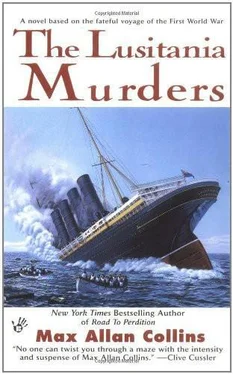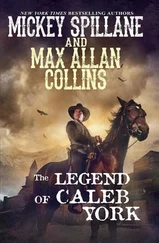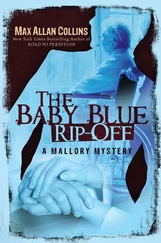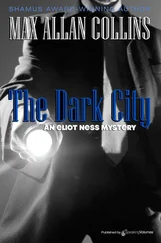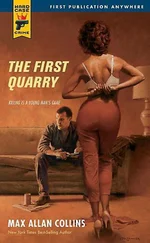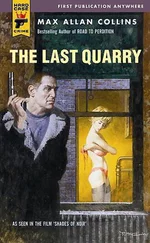Max Collins - The Lusitania Murders
Здесь есть возможность читать онлайн «Max Collins - The Lusitania Murders» весь текст электронной книги совершенно бесплатно (целиком полную версию без сокращений). В некоторых случаях можно слушать аудио, скачать через торрент в формате fb2 и присутствует краткое содержание. Жанр: Криминальный детектив, на английском языке. Описание произведения, (предисловие) а так же отзывы посетителей доступны на портале библиотеки ЛибКат.
- Название:The Lusitania Murders
- Автор:
- Жанр:
- Год:неизвестен
- ISBN:нет данных
- Рейтинг книги:3 / 5. Голосов: 1
-
Избранное:Добавить в избранное
- Отзывы:
-
Ваша оценка:
- 60
- 1
- 2
- 3
- 4
- 5
The Lusitania Murders: краткое содержание, описание и аннотация
Предлагаем к чтению аннотацию, описание, краткое содержание или предисловие (зависит от того, что написал сам автор книги «The Lusitania Murders»). Если вы не нашли необходимую информацию о книге — напишите в комментариях, мы постараемся отыскать её.
The Lusitania Murders — читать онлайн бесплатно полную книгу (весь текст) целиком
Ниже представлен текст книги, разбитый по страницам. Система сохранения места последней прочитанной страницы, позволяет с удобством читать онлайн бесплатно книгу «The Lusitania Murders», без необходимости каждый раз заново искать на чём Вы остановились. Поставьте закладку, и сможете в любой момент перейти на страницу, на которой закончили чтение.
Интервал:
Закладка:
Another briefcase! Was there a million dollars in it, I wondered, or perhaps several bags of diamonds? That would have fitted the trend, all right-although in this case, the “treasure” in that battered bag was more likely page after scribbled page of words of wisdom from the aphorism-spouting “homely philosopher.”
I knew quite a bit about Hubbard already, having written several humorously critical articles about him (in one of which I’d termed him “the P.T. Barnum of the arts”). His career as an author-he was sort of a Mark Twain without the wit or storytelling ability-had not begun until his mid-thirties. A poor boy who’d quit high school to work as a travelling salesman, he had sold soap door-to-door, educating himself by devouring books in the dim light of dingy hotel rooms.
No one could deny that Hubbard had a gift for sales-had he not been so sincere about his beliefs, he would have made a wonderful confidence man. He had risen to a partnership in that soap company, which his admittedly clever merchandising ideas had turned into a multimillion-dollar enterprise. At the height of this success he walked out to enroll in college!
He chose Harvard, no less, where his writing teachers looked at his prose and advised a return to the soap business. Indignant, Hubbard left the campus, returned to his farm home in small East Aurora, New York, and began submitting his work to Manhattan publishers, who also knew soap when they smelled it.
Finally, finding no takers for his brilliance in prose, Hubbard began to self-publish his magazine, The Philistine , a periodical whose homely little anecdotes and ham-on-wry quips attracted a following. His antiwar article “A Message to Garcia” caught fire and sold forty million copies, making him famous. . and rich.
He had built an empire of sorts there in East Aurora, becoming a kind of benign cult leader to a group called the Roycrofters, who lived in a village he ruled. He invited people to come to learn to work with their hands, while, in their spare time, learning to use their minds. At the end of the work day, the Roycrofters would listen to music and read books. It was capitalism dressed up like communism.
The Roycrofters’ chief source of income was printing and binding expensive editions of the classics as well as Hubbard’s own writings (Alice’s, too). In addition they wove rag rugs and baskets, and manufactured hand-modelled leather goods, brassware, pottery, and Mission-style furniture.
“I’m pleased to talk to you, Mr. Van Dine,” he said. He had an undeniable warmth, and possessed a presence as compelling as his wife-who disappeared into the sofa-did not. “After all, one of my tiny claims to fame is pioneering the on-the-spot profile.”
“Your ‘Little Journeys,’ ” I said, with a forced smile and a nod, referring to booklets he’d published over the years in which he’d written articles based on visits with famous people. John D. Rockerfeller, Luther Burbank, Thomas Edison-one celebrity a month for fourteen years. . all of the articles hero-worshipping tripe.
Though his face was almost childishly placid, his brown eyes had fire. “I presume you wish to speak to me about my article. . Did you get a copy?”
“No, I did not, sir.”
“How about you, young lady?”
“No, Mr. Hubbard,” Miss Vance said.
He beamed and reached down and unlatched the bulging briefcase, withdrawing two copies of a digest-sized magazine with a rather plain cover. He handed a copy to me, and another to Miss Vance, with obvious pride.
The magazine’s title- The Philistine -was in a sort of Gothic script, vaguely religious in aspect. It was subheaded: “A Periodical of Protest,” and bore no cover illustration, just an aphorism between red bars: “NEUTRALITY: The attempt of a prejudiced mind to convince itself that it is not prejudiced.”
A small design included the volume and issue number, and in a justified-margin square of type it said: “Printed Every Little While for the Society of the Philistines and Published by Them Monthly. Subscription, One Dollar Yearly. Single Copies, Ten Cents. October 1914.”
“I’m anxious to read your article,” I said, meaning it. “But I’ve already read many excerpts in the press.”
“ ‘Who Lifted the Lid Off Hell?’ has attracted more attention than anything I’ve written since ‘Garcia.’ ” He was grinning like a monkey, and his wife was looking at him sideways, with her own smile, less the simian variety and more the madonna.
Miss Vance said, “I understand it’s quite critical of Kaiser Bill.”
“I like to call him Bill Kaiser,” Hubbard said, and winked at her, as if this were an incredible display of wit.
“You called him a number of other things, too,” I said. I had the magazine open, and quickly scanned the article that was considered the most scathing condemnation of the Kaiser to appear in any American publication to date, looking for examples. “Here you say he’s ‘a mastoid degenerate’. . and here, a ‘megalomaniac.’ ”
Hubbard was nodding. “Bill Kaiser’s always speaking of God as if the Creator were waiting to see him in the lobby. He says God is on his side.” He snorted a laugh. “Any man who believes the Maker of the Universe takes a special interest in him is clearly a megalomaniac.”
He had a point.
I offered another example: “The Kaiser’s a ‘sad, mad, bad, bloody monster.’ ”
Again nodding, Hubbard said, “That’s right. Oh, some have said Bill Kaiser has kept the peace for forty-three years. . but he was just biding his time for this grab at world domination. And every male child born in those forty-three years, who can carry a gun, is being made to do that monster’s obscene bidding.”
“ ‘Caligula, that royal pagan pervert, was kind compared to the Kaiser.’. . ‘Nero, the fiddling fiend, never burned half as much property.’. . And yet you expect the Kaiser to grant you an audience? An interview?”
He folded his arms, and that kindly face offered me a patronizing smile. “Mr. Van Dine, the only way to avoid criticism is to do nothing. . and say nothing.”
“But if you want the Kaiser to listen to reason, wasn’t it a mistake to-”
“The greatest mistake you can make in life is to continually fear you’ll make one.”
How could you discuss anything intelligently with this human homily machine?
“Bill Kaiser,” he was saying, “is just another of these self-appointed folk who rule us, who are unwilling to do unto others as they would be done by them. . that is, to mind their own damned business and cease coveting things that don’t belong to them! That’s all war is, you know-a result of the covetous spirit to possess.”
I didn’t disagree with any of this, exactly, it just seemed obvious, as obvious as the way this character liked to hear the sound of his own voice.
But Miss Vance, surprisingly, seemed keenly interested, and asked him, “Why do you think the German people stand behind ‘Bill Kaiser,’ then?”
“The answer is easy,” he said. “It’s a matter of the hypnotic spell of patriotism. . the lure of the crowd, combined with coercion. Look at Germany today! No private individual can operate an automobile. No bands can play in public parks. All savings banks are closed. Factories are closed. Colleges have been turned into hospitals-why not? All the students are at the front!”
I tried again. “Do you consider yourself anti-German, or just anti-‘Bill Kaiser’?”
“Oh, my heart is with Germany! The Germany of science, invention, music, education, skill. The crazy Kaiser will not win.”
“But you think he will talk to you.”
“Even if I don’t get any closer to the Kaiser than the Paris suburbs, I’ll write of the war from an American point of view that’s sorely needed-from Zeppelin raids over London, to the British viewpoint on American neutrality.”
Читать дальшеИнтервал:
Закладка:
Похожие книги на «The Lusitania Murders»
Представляем Вашему вниманию похожие книги на «The Lusitania Murders» списком для выбора. Мы отобрали схожую по названию и смыслу литературу в надежде предоставить читателям больше вариантов отыскать новые, интересные, ещё непрочитанные произведения.
Обсуждение, отзывы о книге «The Lusitania Murders» и просто собственные мнения читателей. Оставьте ваши комментарии, напишите, что Вы думаете о произведении, его смысле или главных героях. Укажите что конкретно понравилось, а что нет, и почему Вы так считаете.
